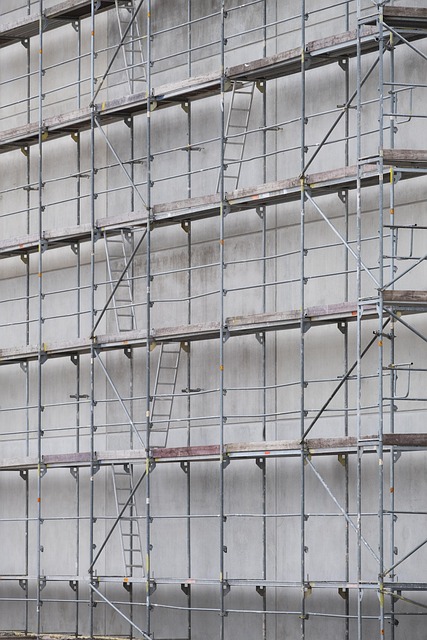Share This Article:

Safety at Work
Chicago, IL (WorkersCompensation.com) – The family of an ironworker who fell to his death at a Chicago construction site was awarded $23.5 million in a wrongful death lawsuit.
David O’Donnell, 26, and Jeffrey Spyrka, 36, were working on a construction site for the University of Chicago Cancer Pavilion Project on Maryland Street in June 2024 when they fell nearly eight stories. The men were working on scaffolding for the elevator shaft construction when they fell off the scaffolding and through the ground level pit. Wind gusts of up to 40 miles per hour, and officials believe the winds were to blame for the accident.
O’Donnell was found dead at the scene. Spyrka, who fell onto a pile of PVC pipes and survived, was taken to the hospital in critical condition.
“He was supposed to be safe at work, and now my son is never coming home again,” David O’Donnell, Sr., the deceased worker’s father said.
Both O’Donnell’s and Spyrka’s families filed suit against Adjustable Forms, Inc. and Turner Construction Company, the companies attorneys with GWC Injury Lawyers said were responsible for the incident.
“Preliminary investigations revealed serious deficiencies in the scaffold system, which was designed to withstand winds up to 85 mph but failed under a single 44 mph gust. Structural weaknesses, improper materials, and a lack of adequate connections at a critical corner contributed to the collapse,” the firm said in a June 9 news release.
After the incident happened, Adjustable Forms said it was a safe company.
“Safety is integral to what we do,” the company said. “Adjustable Concrete is partnering with Turner Construction to support a full investigation into this matter alongside the Occupational Safety and Health Administration (OSHA). We are deeply grateful for the University of Chicago Medical Center doctors and all first responders involved.”
Witnesses at the time of the accident said they saw the scaffolding sway before the workers fell, and that the scaffolding was secured to the building after the incident. Guidelines from a scaffold industry safety group recommend that “when wind speeds exceed 25 miles per hour” scaffold work should cease.
According to the lawsuit, Spyrka and O’Donnell were caught in a wind gust that caused the scaffold section to swing away from the wall, throwing the workers to the ground, Louis C. Cairo, one of the three attorneys representing the families of the two men, said.
“The family is most thankful for the doctors who rushed out of the building almost immediately after the men hit the ground and immediately began trying to provide life-saving medical measures,” Cairo said. “The Spyrka family is thankful that those efforts have saved Jeff’s life, although they mourn the loss of David O’Donnell, who was a friend, a building trades brother and an amazing young man.”
The lawsuit alleges that Adjustable Forms failed to secure the scaffolding properly which would have prevented the incident. Further, the lawsuit said the scaffolding had recently been constructed, and the two men were told it was structurally sound and safe to work on.
“These workers should have never been working on what turned out to be an unsafe, dangerous scaffold perched over 100 feet in the air,” Cairo said. “This was an absolutely callous act of negligence and misconduct by major construction companies who viewed progress on the job as their priority rather than the safety of the workers on the job. The evidence will prove that this was a totally preventable catastrophe.”
Cairo said the two companies “just wanted the job done, because time is money, profit over safety.”
The $23.5 million settlement for O’Donnell’s family avoided a protracted and costly litigation, attorneys said in a press release.
“Our team has worked diligently over the past year to achieve a prompt and meaningful resolution for the O’Donnell family. The profound loss they have endured following David’s tragic death is truly unimaginable,” Cairo said. “We sincerely hope that this settlement provides a foundation for healing and allows the family to begin moving forward.”
The lawsuit is ongoing for Spyrka and “nine other ironworkers who suffered injuries during the same incident,” the firm said. Spyrka suffered numerous broken bones, as well as injuries to his head and internal organs. Cairo said Spyrka has undergone numerous surgeries and is responsive but not paralyzed.
"Heaven just doesn't have room for one more angel right now, because he, it's a miracle he's alive," Cairo said.
AI california case file caselaw case management case management focus claims compensability compliance compliance corner courts covid do you know the rule employers exclusive remedy florida glossary check Healthcare hr homeroom insurance insurers iowa leadership medical NCCI new jersey new york ohio pennsylvania roadmap Safety safety at work state info tech technology violence WDYT west virginia what do you think women's history women's history month workers' comp 101 workers' recovery Workplace Safety Workplace Violence
Read Also
- Feb 27, 2026
- Frank Ferreri
- Feb 26, 2026
- Frank Ferreri
About The Author
About The Author
-
Liz Carey
Liz Carey has worked as a writer, reporter and editor for nearly 25 years. First, as an investigative reporter for Gannett and later as the Vice President of a local Chamber of Commerce, Carey has covered everything from local government to the statehouse to the aerospace industry. Her work as a reporter, as well as her work in the community, have led her to become an advocate for the working poor, as well as the small business owner.
Read More
- Feb 27, 2026
- Frank Ferreri
- Feb 26, 2026
- Frank Ferreri
- Feb 25, 2026
- Liz Carey
- Feb 25, 2026
- Anne Llewellyn
- Feb 24, 2026
- Chris Parker
- Feb 24, 2026
- Frank Ferreri




